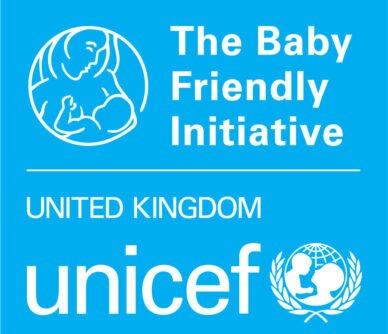Mother-support groups
- The Association of Breastfeeding Mothers (ABM)
- The Breastfeeding Network (BfN), including the Drugs in Breastmilk Information Service
- La Leche League GB (LLLGB)
- The Multiple Births Foundation
- The National Childbirth Trust (NCT)
- National Breastfeeding Helpline (supported by ABM and BfN).
Other useful organisations
- The Baby Cafe Charitable Trust: a growing nationwide network of drop-in centres for pregnant and breastfeeding mothers
- Baby Milk Action: for information about the International Code of Marketing of Breastmilk Substitutes and legislation to control the promotion of bottle feeding
- Global Breastfeeding Collective: led by UNICEF and WHO, the Global Breastfeeding Collective is a partnership of more than 20 prominent international agencies calling on donors, policy makers and civil society to increase investment in breastfeeding worldwide
- Lactation Consultants of Great Britain: International Board Certified Lactation Consultants are qualified to promote and support breastfeeding in a variety of NHS and community settings, and also in private practice
- UK Drugs in Lactation Advisory Service: evidence-based information for health professionals on the use of drugs during the breastfeeding period
- United Kingdom Association for Milk Banking: provides information on the collection, storage and feeding of breastmilk to vulnerable infants
- Breastfed Babies: a site set up by the Health Promotion Agency in Northern Ireland containing information and support for new and expectant mothers
- Amazing Breast Milk: a site designed to provide impartial guidance on breastfeeding and bottle-feeding, including an honest account of what breastfeeding is really like, created by NHS Knowsley, Liverpool PCT, NHS Sefton and NHS Wirral in response to a large-scale consultation with families about infant feeding
- Maternity Action: specialist resources on the law relating to breastfeeding on return to work and breastfeeding when out and about
- First Steps Nutrition: information and resources to support eating well from pre-conception to five years, including evidence-based information about formula milks
- Baby Feeding Law Group: extensive information on the WHO International Code of Marketing of Breastmilk Substitutes and UK law
- ACAS: guidance on supporting breastfeeding upon a mother’s return to work
- NHS Breastfeeding: the NHS’s site which includes information on National Breastfeeding Awareness Week
- Breastfeeding Manifesto: information about the Manifesto, the Coalition and how to support their aims
- Jane’s Breastfeeding and Childbirth Resources: an informational website dedicated to the promotion of breastfeeding, run by Jane, a mother and Breastfeeding Tutor with the Breastfeeding Network
- World Alliance for Breastfeeding Action: a global network of individuals and organisations concerned with the protection, support and promotion of breastfeeding worldwide
- Global Health Media: a site which contains a range of videos about breastfeeding, available in nine languages.
Health information
- National Institute for Health and Clinical Excellence: provides research on breastfeeding alongside national guidance on promoting good health and preventing and treating ill health
- Breastfeeding Manifesto: offers information about the Manifesto, the Coalition and how to support their aims to increase awareness of the health benefits of breastfeeding, and to lobby for changes in government policies and approaches relating to breastfeeding
- BirthChoiceUK: presents maternity statistics in an easily readable format about each maternity unit in the UK, as well as provides information about home births and other options for mothers
- International Confederation of Midwives: supports, represents and works to strengthen the professional associations of midwives by including information about its work, members and projects, as well as useful publications and research
- The National Institute for Health Research (NIHR): coordinates a programme of commissioned research, funded by the UK Department of Health, which contains summaries and full versions of more than 100 published reports
- UCL Institute of Child Health: an international centre of excellence for treating sick children and teaching and training children’s specialists; it is the largest centre for research into childhood illness outside the United States
- MIDIRS: provides a wide range of information for all health professionals, non-statutory agencies or any individual involved in the care of childbearing women and their babies in pregnancy, after childbirth and up to the first year of life
- 1001 Critical Days Manifesto: this unique, cross-party manifesto demonstrates a vision for the provision of services in the UK for the early years period, and puts forward the moral, scientific and economic cases for the importance of the conception to age 2 period. It is represented in Parliament by Rt Hon Frank Field MP for Labour, Rt Hon Paul Burstow MP for Liberal Democrats, Caroline Lucas MP for the Green party, and Andrea Leadsom MP for the Conservatives. The Manifesto highlights the importance of acting early to enhance outcomes, in this period of life which can have such an important impact on children’s life chances.
- Good Food for London and Beyond the Food Bank: these reports highlight the work of London Boroughs to develop a healthy, sustainable and ethical food system for all, documenting the uptake of a range of key good food initiatives available to all London councils. The report is produced by an alliance of organisations working to improve London’s food. Alongside The UNICEF UK Baby Friendly Initiative, these organisations include: the Chartered Institute of Environmental Health, the Soil Association, the Living Wage Foundation, Fairtrade London, Compassion in World Farming, the Marine Conservation Society, Sustainable Food Cities, Sustain and the London Food Board.
- Superfood for Babies: this 2013 report by Save The Children estimates more than 800,000 deaths could be prevented each year if babies were given breastmilk in the first hour of life
- Breastfeeding Advocacy Toolkit: this collection of advocacy tools from the Global Breastfeeding Collective is aimed at improving policies and financing for the protection, promotion, and support of breastfeeding.
UNICEF UK statement on endorsement of third party materials
For our updated statement on endorsements, please see our Statements page.



